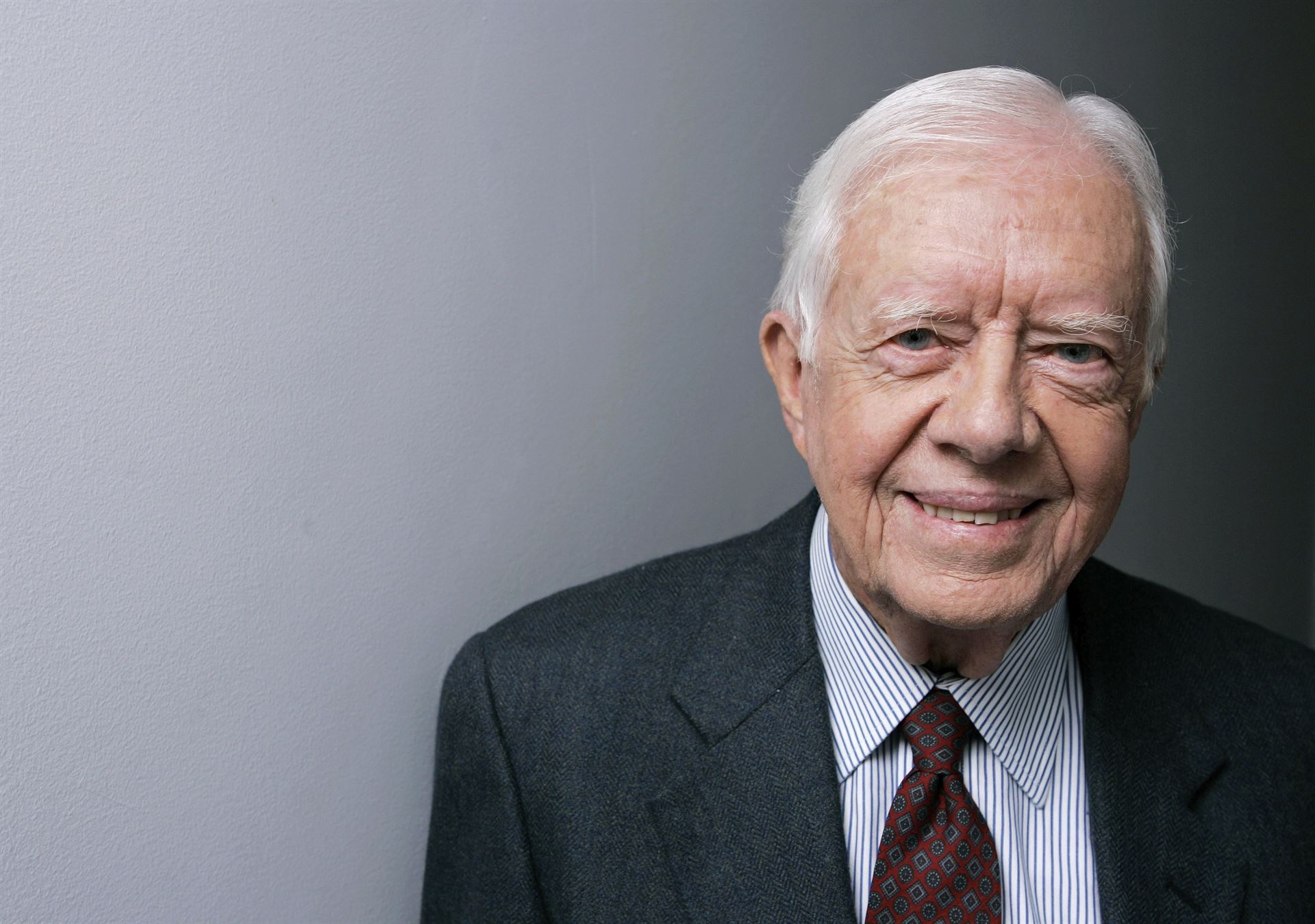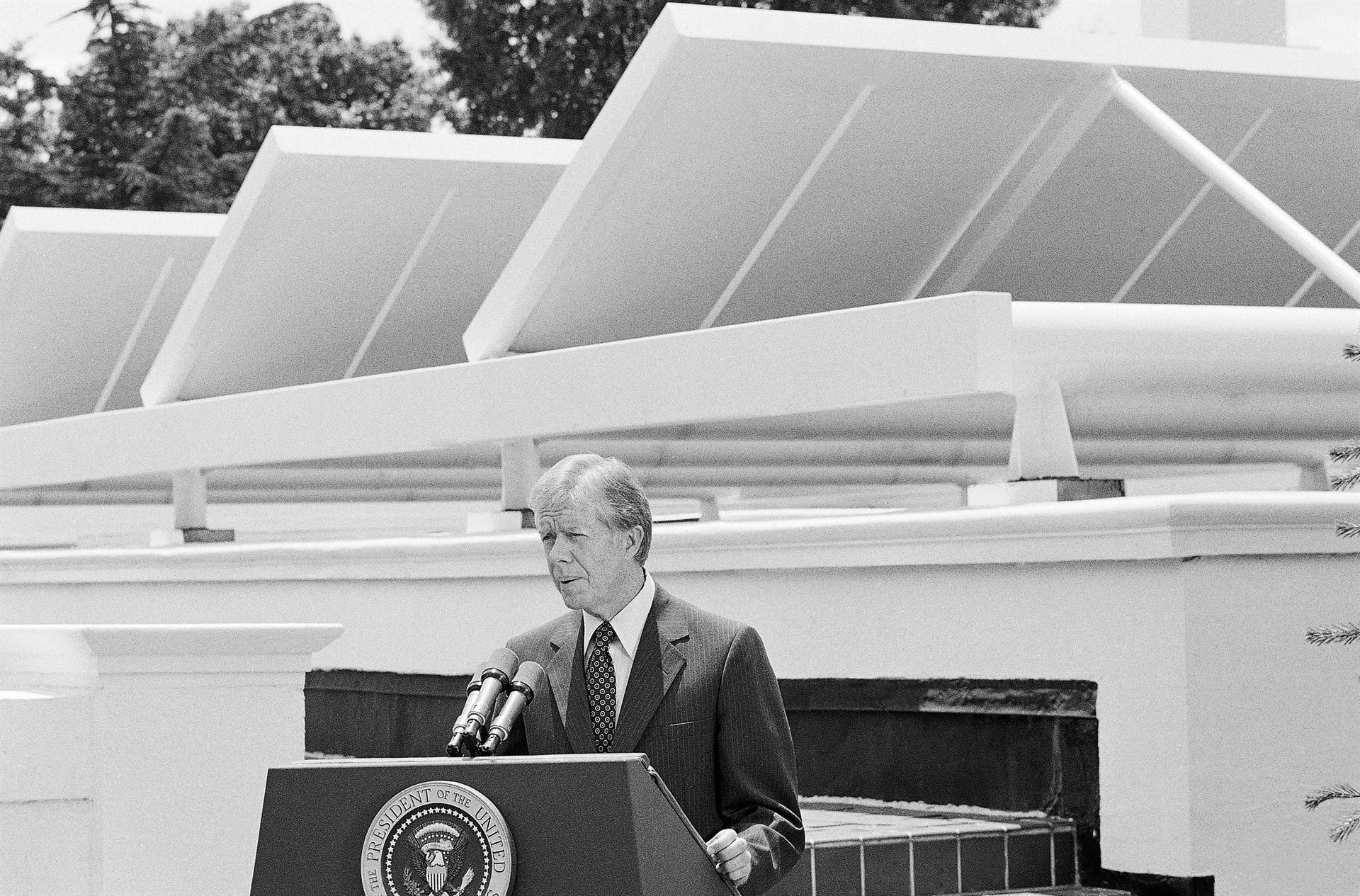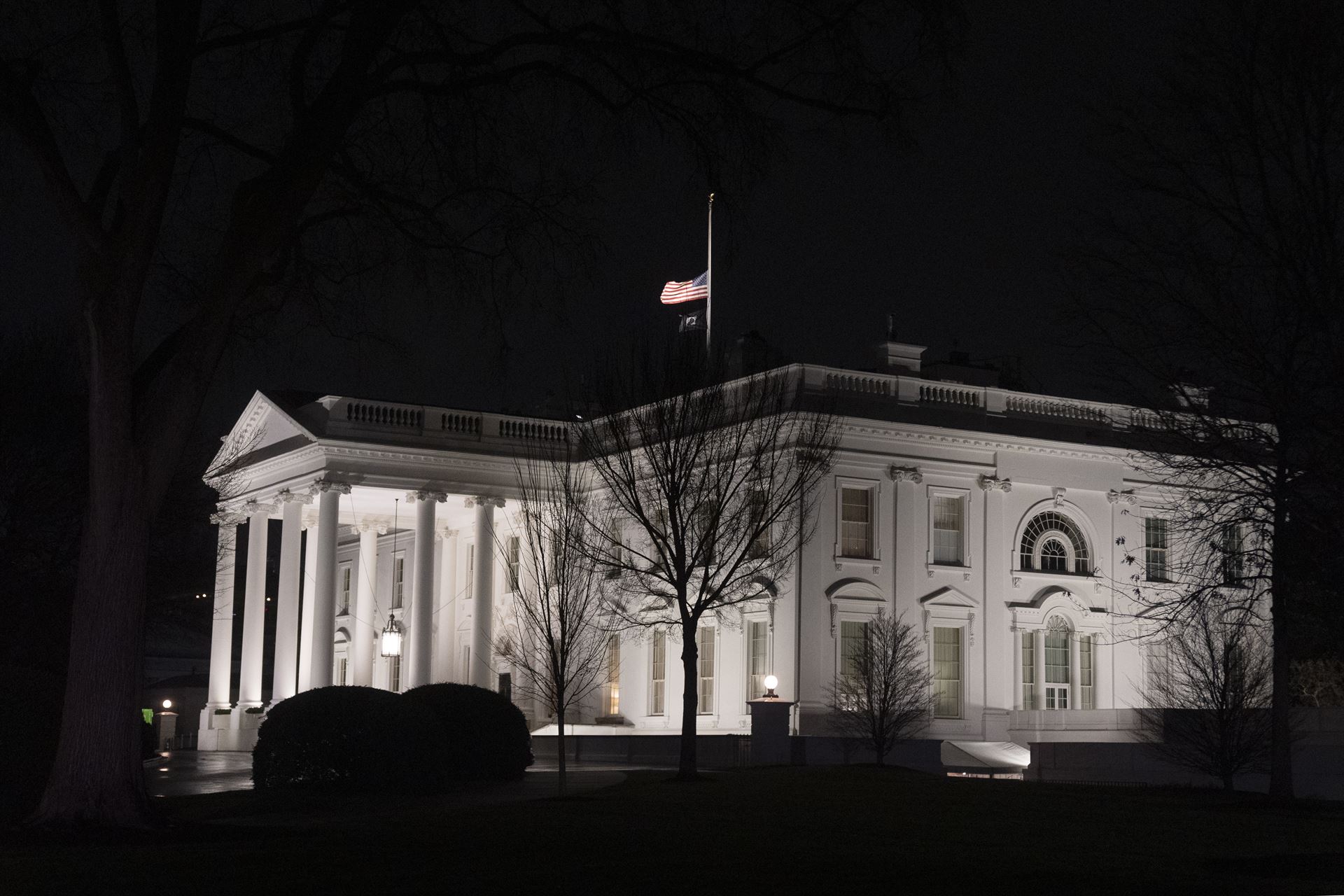
Former US president Jimmy Carter, who established diplomatic relations with China in 1979, died on Sunday at the age of 100.
Carter, who served one term after his election in 1976, also saw his presidency defined negatively by the Iran hostage crisis in 1979 but positively by the Camp David peace accords. He lost his reelection bid to Ronald Reagan in 1980.
The center announced the death of Carter at his longtime home in Plains, Georgia, where he had been in hospice care for nearly two years.
ALSO READ: Jimmy Carter hopeful on US-China ties
Carter’s wife, former first lady Rosalynn Carter, died in 2023 at the age of 96.
"To all of the young people in this nation and for anyone in search of what it means to live a life of purpose and meaning — the good life — study Jimmy Carter, a man of principle, faith, and humility," President Joe Biden said in a statement on Sunday.

President-elect Donald Trump said in a statement Sunday: "The challenges Jimmy faced as president came at a pivotal time for our country, and he did everything in his power to improve the lives of all Americans. For that, we owe him a debt of gratitude."
"President Carter will be remembered for his solidarity with the vulnerable, his abiding grace, and his unrelenting faith in the common good and our common humanity. His legacy as a peacemaker, human rights champion and humanitarian will endure," United Nations Secretary-General Antonio Guterres said in a statement.
READ MORE: Former US first lady Rosalynn Carter dies at 96
A native of the small town of Plains, where he was a peanut farmer, Carter was known for his folksy ways and his later humanitarian efforts, such as Habit for Humanity, which built homes for needy people. He was awarded the Nobel Peace Prize in 2002.
The 39th US president, Carter was also the longest-living American president. He was a 1946 graduate of the US Naval Academy. In 1953, as a lieutenant, Carter was in charge of a crew that would work on the first nuclear submarine, the Nautilus.
The Carters established The Carter Center in Atlanta in 1982, which "seeks to prevent and resolve conflicts, enhance freedom and democracy, and improve health", its website says.

In January 2019, the center held a three-day event to commemorate the 40th anniversary of the normalization of US-China relations.
"Our being the only US-based organization to do this is a stark indication of how the bilateral landscape has changed in recent years," Jimmy Carter said then.
"In December 1978, when Vice-Premier Deng Xiaoping and I announced our decision, we knew that we were opening an era of opportunity for both nations. I have been proud to witness the benefits that have followed," Carter said in a talk with the George H. W. Bush Foundation for US-China Relations in August 2021.
READ MORE: Jimmy Carter, 98, to receive hospice care
Iran had held 52 Americans hostage for 444 days during Carter’s presidency, and the story dominated US headlines the entire time. The hostages were released on the day that Reagan was inaugurated in 1981.
Carter also had to contend with a Middle East oil embargo, which led to long lines at gasoline stations in the United States, along with soaring inflation.
In September 1978, he invited Israeli Prime Minister Menachem Begin and Egyptian President Anwar Sadat to Camp David in Maryland for almost two weeks of peace talks between their nations.
The talks concluded with the signing of the Camp David Accords, memorialized by one of the most enduring images of the era, as all three men joined hands.
Zhao Huanxin in Washington contributed to this story.


